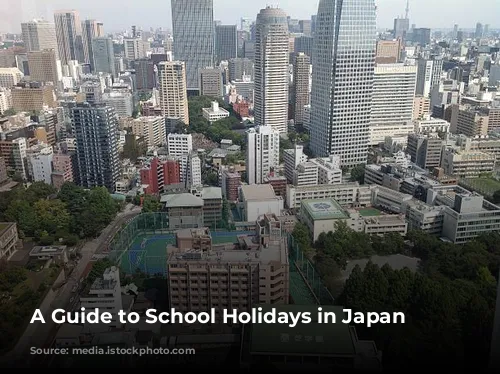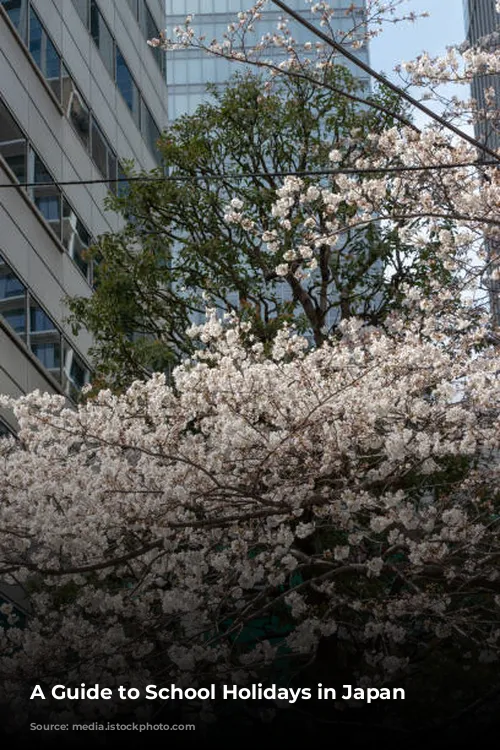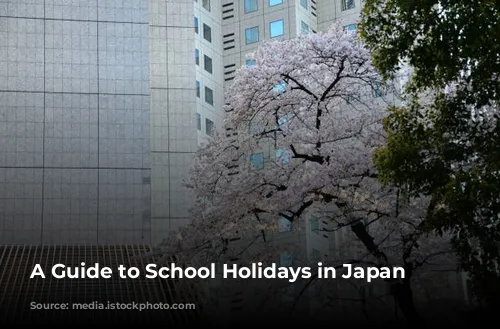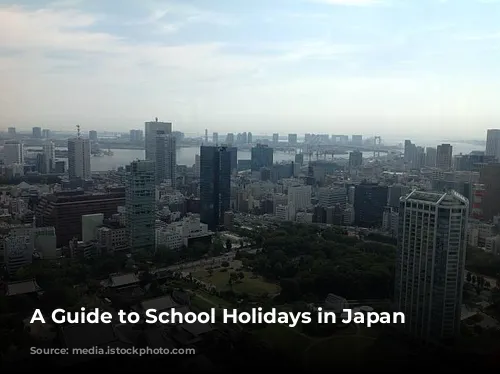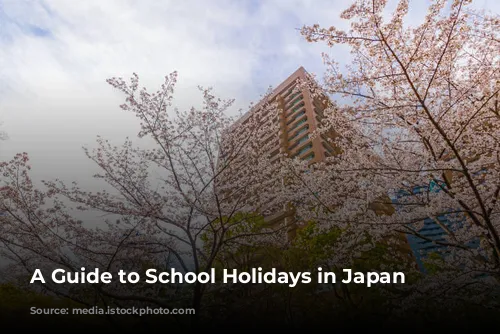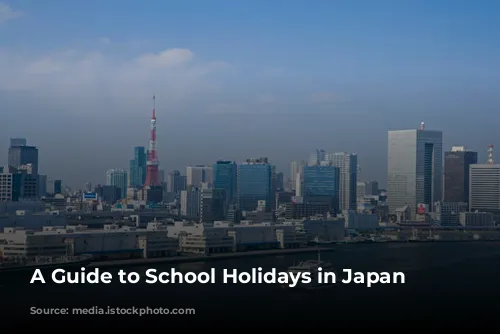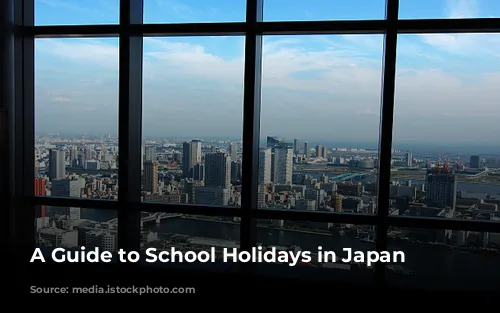School holidays in Japan are a significant part of the academic year and offer opportunities for families to enjoy cultural events and travel. The Ministry of Education, Culture, Sports, Science, and Technology (MEXT), also known as Monbu Kagaku Sho (文部科学省), sets the national school calendar.

The School Year and Holidays
The school year in Japan starts in April and ends in March of the following year. This aligns with the Japanese fiscal year, which runs from April to March, and reflects the typical business holiday schedule. Public and private schools generally adhere to the same schedule, though there may be slight regional variations.
While MEXT sets the holidays, municipalities can make minor adjustments. For instance, the city of Tokyo might begin its school year on 7 April instead of 6 April. It’s always wise to check with your child’s school for specific dates.
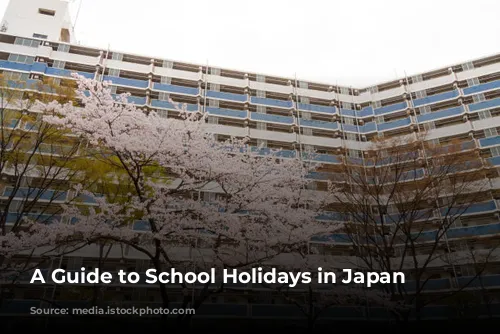
Primary and Secondary Schools
Primary and secondary schools operate on a trimester system. Holidays are generally consistent, with three major breaks:
- Summer break: Typically, the longest break, lasting for several weeks in July and August.
- Winter break: A shorter break in December and January.
- Spring break: A week-long break in March.
While children enjoy these breaks, they are also given a substantial amount of homework and projects to complete.
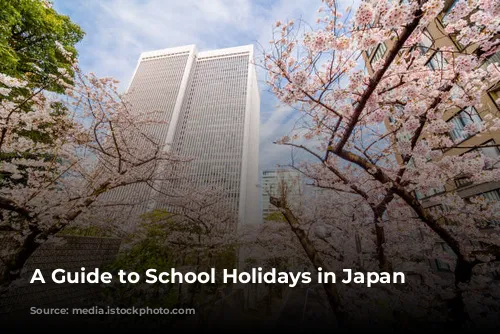
Universities and Preschools
Universities in Japan have two semesters. The academic year starts in April and ends in July, followed by a two-month summer break. The second term runs from October to February, with a spring break in March.
Preschools, on the other hand, have longer school breaks. Younger children often enjoy half-days or extra holidays at the beginning and end of each term. For example, while most elementary and secondary schools start around 6 April, preschools might begin the following Monday, 10 April.
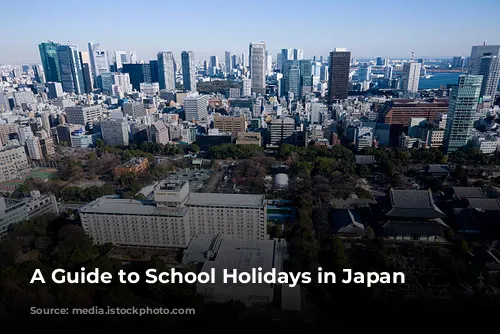
Cultural Events and Holidays
Several school holidays in Japan are celebrated with cultural events and traditions.
Sports Day, observed on 9 October, is a national holiday when families come together for physical activities. This holiday commemorates the 1964 Tokyo Olympics and encourages a healthy lifestyle.
The Golden Week, a popular holiday period, begins with Showa Day on 29 April and continues with Constitution Memorial Day (3 May), Greenery Day (4 May), and Children’s Day (5 May). Families often use this time for travel.
Obon, a Japanese summer holiday, is a time when ancestral spirits are said to return to Japan. From 13 to 16 August, many people visit their ancestral towns and villages. Travel during this period can be busy, so it’s wise to book accommodations and transportation in advance.
Respect for the Aged Day and Autumnal Equinox Day, when they fall on the same weekend, create a long weekend known as Silver Week. Another popular travel period, Silver Week offers a chance to explore Japan.
New Year’s Day, or Shogatsu, is another busy time. Families gather to celebrate the start of the new year, making it a popular time for travel and festive gatherings.
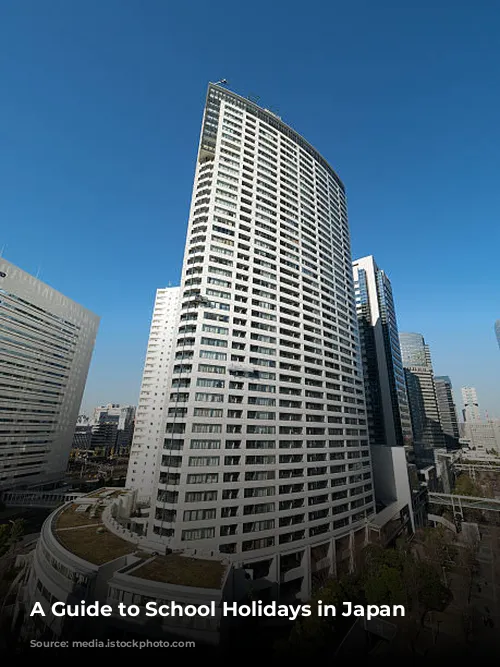
International Schools
International schools in Japan follow a different school calendar than their public counterparts. They usually adhere to the academic year of their associated countries. Most international schools have two semesters, beginning in late August and ending in June. Their holidays typically include:
- A long weekend or week-long break in February.
- A spring break of one or two weeks in March or April.
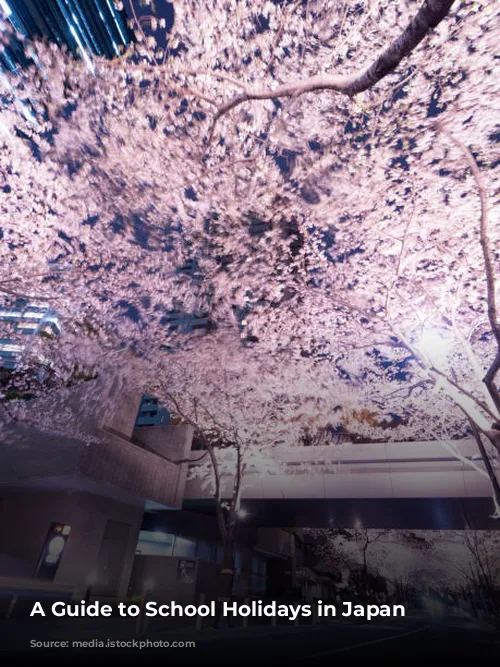
Childcare During School Holidays
Finding childcare during school holidays in Japan can be challenging, but options are available.
Many schools offer childcare programs for younger children, including half-day programs and day camps. If you only need temporary childcare, you can hire a babysitter or parents’ helper.
International schools often have lists of older students who can babysit. You can also ask friends, neighbors, or members of expat social media groups for recommendations.
Public schools don’t offer this system, but hiring a nanny or au pair might be an option if your work schedule differs significantly from the school holidays.
For longer breaks, day camps and overnight programs provide opportunities for students to learn Japanese, develop outdoor skills, and participate in STEM activities. English language programs are also available.
Before enrolling your child in any camp, ensure they have a list of emergency numbers and are up to date on their vaccinations.
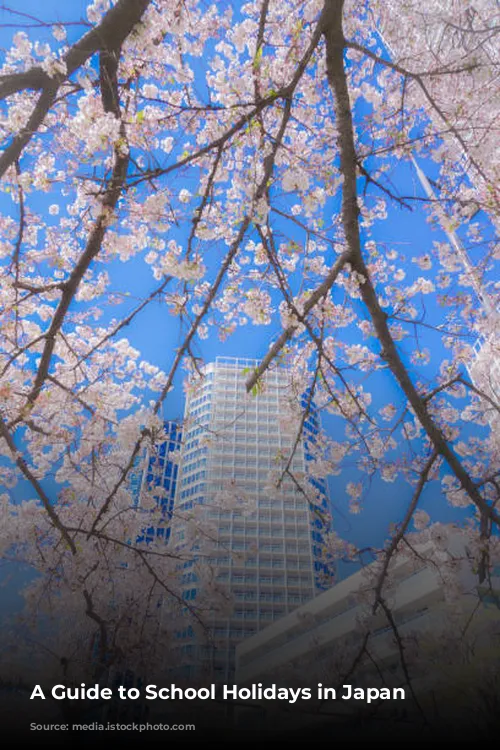
Regional Variations
While Japan’s school holidays are consistent throughout the country, there are some regional variations.
Tokyo Citizen’s Day, celebrated on 1 October, is not a public holiday but many schools are closed. Students can enjoy free admission to zoos, museums, and cultural sites.
Okinawa Memorial Day, celebrated on 23 June, is a public holiday in Okinawa, a Japanese island over 600 kilometers from the mainland. This holiday commemorates the lives lost during World War II, and families often visit memorials or cemeteries.
Navigating school holidays in Japan requires careful planning and a bit of flexibility. Knowing the dates and options for childcare will help you create a smooth and enjoyable experience for both you and your child.
